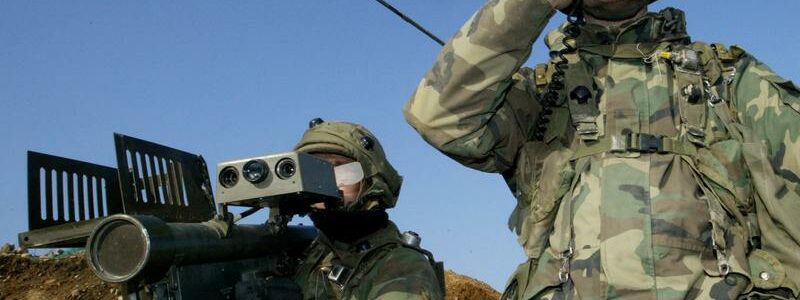
Shrinking U.S. Stinger missile supply faces re-stocking challenges
WASHINGTON (Reuters) – Shoulder-fired Stinger missiles are in hot demand in Ukraine where they have successfully stopped Russian assaults from the air, but U.S. supplies have shrunk and producing more of the anti-aircraft weapons faces significant hurdles.
Challenges include complications related to ramping up production, reluctance by the United States to redirect valuable manufacturing capacity to decades-old technology, and fears among defense companies that they would be stuck with unwanted arms when the Ukraine war winds down, according to interviews with U.S. officials and defense firms.
While U.S. troops themselves have limited use for the current supply of Stingers — a lightweight, self-contained weapon that can be deployed quickly to defend against helicopters, airplanes, drones and even cruise missiles — the U.S. needs to maintain its supply on hand while it develops the next generation of a “man-portable air defense system.”
“Right before Ukraine hit, we were going to divest ourselves of Stingers,” a congressional source said. Still, Pentagon officials are concerned about a “dwindling” surplus, according to a Pentagon official and the congressional source.
Ukrainian troops have shot down at least six targets during the conflict using Lithuanian-provided Stingers, according to an April 6 Facebook post by Arvydas Anusauskas, Lithuania’s defense minister, including helicopters, planes, drones and a cruise missile. Reuters could not verify the claim.
Since February, the U.S. has shipped 1,400 Stingers to Ukraine, according to an administration official. But sourcing more will be difficult.
The Stinger production line was closed in December 2020, said Pentagon spokesperson Jessica Maxwell. Since then, Raytheon Technologies won a contract in July 2021 to manufacture more Stingers, but mainly for international governments, according to the U.S. Army. The sole Stinger facility, in Arizona, only produces at a low rate.
The Pentagon has not ordered new Stingers for about 18 years, but has ordered parts or made other efforts to increase its supply. For example, the Army is in the middle of a “service life extension plan” for some of its Stingers that were to become obsolete in 2023 and is extending what the military calls their “useful life” until 2030.
The Pentagon, which has thrown together weekly meetings to discuss surging weapons demand from Eastern Europe, met with a group of eight defense-contractor chief executives in mid-April to discuss the supply of weapons to Ukraine, including the Stinger.
Two sources familiar with the meeting said Raytheon CEO Greg Hayes noted that it can require six to 12 months to restart a munitions production line.
Hayes told analysts on a post-earnings conference call on Tuesday that “we have a very limited stock of material for Stinger production.”
“We’ve been working with the Department of Defense for the last couple of weeks,” Hayes said. “Some of the components are no longer commercially available, and so we’re going to have to go out and redesign some of the electronics in the missile of the seeker head. That’s going to take us a little bit of time.”
Hayes said he could ramp up production in 2022, but larger replenishments will be in 2023 or 2024.
At the meeting of CEOs earlier this month, industry executives voiced reservations about increasing weapons production. One chief executive said that when the Ukraine war winds down, they do not want to be stuck with warehouses full of unsellable inventory without a guaranteed buyer, three people familiar with the discussion said.
Congress also wants more Stingers, or at least something that can do the same job.
The chairman of the House of Representatives Armed Services Committee, Representative Adam Smith, wrote Secretary of Defense Lloyd Austin last week and pointed out an “apparent absence of a Department of Defense plan to meet short-range air defense replenishment requirements for not only our U.S. stocks of Stinger systems, but those of other contributing allies and partners.”
A Pentagon official who oversees weapons acquisitions for the Army, Doug Bush, told Congress on March 31 the Defense Department was putting together a plan to increase Stinger production and planned to inform Congress imminently.
But as of late last week, a second congressional source who spoke on condition of anonymity said there has been no information about the plan.
Senator Richard Blumenthal, a member of the Senate’s Committee on Armed Services, asked Austin earlier in April at a Senate budget hearing about using the Defense Production Act (DPA) to restore depleted supplies of Stingers and Javelin anti-tank missiles.
But using that law, which forces industry to put resources into an immediate effort to make a product needed for national security purposes, is premature, Pentagon spokesperson Maxwell said.
In the longer term, the Army is looking for a replacement for the Stinger that will go into production in 2027.
Source: Read Full Article